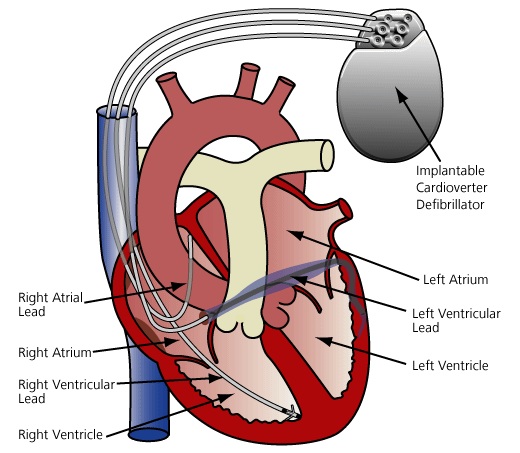An ICD is given to patients for many different reasons. Not everyone with a family history of an inherited cardiac condition needs to have an ICD. If your Doctor has decided that you need an ICD then the following information may apply to you.
What is an ICD?
An ICD is a medical device that is implanted just below your collar bone (usually left) to monitor and, if necessary, treat an abnormal heartbeat (arrhythmia).
The ICD can treat 3 types of arrhythmia
- The ICD contains a built in device known as a pacemaker, which can speed up a slow heart rate.
- The ICD can detect a fast heart rate and the pacemaker can slow down the fast heart rate (without giving a shock), to return the heartbeat to a normal rate. This is known as anti-tachy pacing.
- The ICD can detect a very fast or potentially dangerous heartbeat and deliver an electrical shock which brings the heart back into normal rhythm. This is known as defibrillation.

